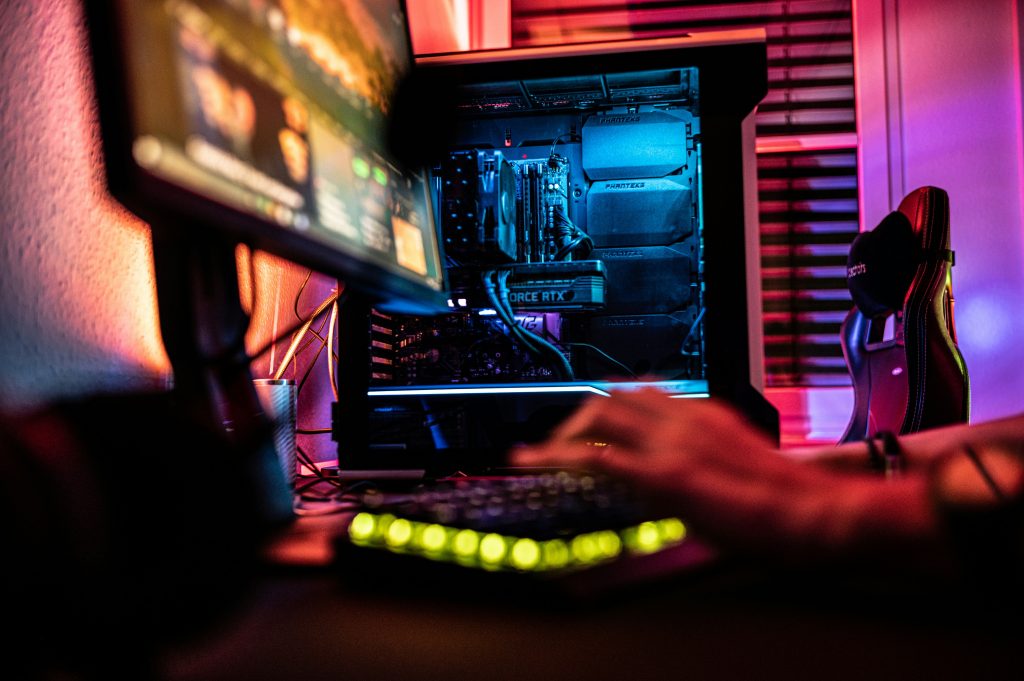When building a gaming PC, one of the most important components to consider is the casing, or chassis. Not only does it serve as the foundation for your PC components, but it also plays a key role in the airflow, cooling, and overall aesthetics of your setup. With countless options available, selecting the right gaming PC casing can be a challenge. Let’s take a closer look at the factors that make a gaming PC casing a crucial part of your build.
1. Size and Form Factor
Gaming PC casings come in different sizes, and the size of your case should correspond to the components you plan to install. The most common form factors are:
- Full Tower: Offers the most space, ideal for high-end components, multiple GPUs, and elaborate cooling systems.
- Mid Tower: A good balance between space and size, perfect for most gaming builds.
- Mini Tower: Compact and space-saving, suitable for users who don’t need as many components or need a more portable setup.
Make sure your case can accommodate your motherboard size (ATX, Micro-ATX, etc.) and your other components, such as graphics cards and storage devices.
2. Cooling and Airflow
Effective cooling is one of the most important features to look for in a gaming PC case. Gaming components, especially the CPU and GPU, can generate a lot of heat, and without proper airflow, your system could overheat, causing performance issues or hardware damage.
Look for cases with mesh panels or multiple fan mounting options that support intake and exhaust fans. Many cases come with built-in fans, but if you plan to overclock or run multiple GPUs, you may need to add extra cooling solutions, such as additional fans or even liquid cooling systems.
3. Cable Management
One of the key factors in keeping your gaming PC organized and functional is good cable management. A messy interior can not only affect airflow but also make it harder to maintain your system. Choose a case with cable management features like dedicated channels, tie-down points, and plenty of space behind the motherboard tray to route cables neatly.
Having clean cable management doesn’t just look better; it also contributes to better airflow, helping to maintain optimal temperatures inside the case.
4. Aesthetic Appeal
While performance is always the priority, the aesthetic of your gaming PC casing can make a big difference in how your setup looks. Whether you prefer a minimalist design or a more bold, gamer-focused appearance, there are plenty of options to suit your style.
Many gaming PC cases come with customizable RGB lighting, tempered glass side panels, and sleek designs that help your build stand out. Choose a case that matches your personal taste and complements your other gaming gear and peripherals.
5. Build Quality and Durability
A well-built gaming PC case is essential for ensuring the safety and longevity of your components. Look for cases made of durable materials like steel or aluminum that can withstand regular handling. Also, check the construction for sturdiness, as flimsy cases can lead to problems with component mounting and airflow.
You also want to ensure that your case provides adequate protection for your hardware. Features like dust filters for intake and exhaust areas can help keep your components clean and free from dust buildup, which could hinder performance.
6. Expansion and Storage Options
As you continue to upgrade your gaming PC over time, you’ll need a casing that can accommodate additional components. Whether you plan on adding more storage drives, expanding your cooling system, or installing a larger graphics card, choose a case with enough expansion slots and drive bays.
Look for cases that offer tool-free installation for drives and PCIe components, as this will make it easier to upgrade your system without hassle.
7. Noise Reduction
If you want to build a quiet gaming rig, choosing a case with noise-dampening materials is a great option. Many modern gaming PC cases feature noise-reducing panels that absorb sound from fans, hard drives, and other moving parts. If you plan to game in a quiet environment or live in a shared space, this feature will make your experience more enjoyable.
Conclusion
The gaming PC case is more than just a shell for your components; it’s a crucial part of your build that influences performance, aesthetics, and usability. When choosing a casing, consider the size, cooling options, airflow, cable management, and overall build quality. With the right case, you can ensure that your gaming rig not only looks great but also performs optimally for years to come. Always think about your future upgrades, as a good case will grow with your build and help you get the most out of your gaming experience.

